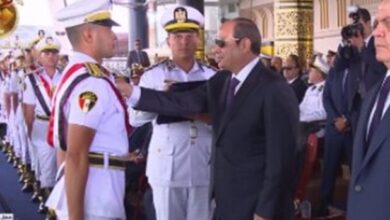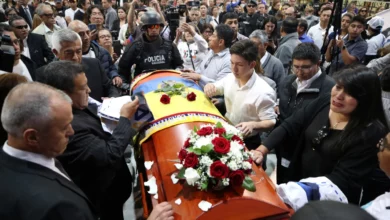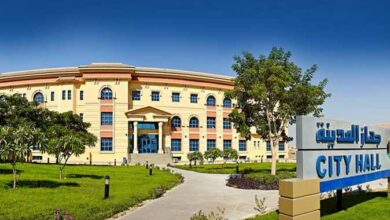Former intelligence chief Omar Suleiman left the Police Academy on Tuesday afternoon after testifying at the trial of former President Hosni Mubarak and other officials charged with involvement in killing protesters during the uprising.
Suleiman arrived in his own car at the academy, located in the Fifth Settlement, north of Cairo, at 9:30 am. He entered through the main gate and began to testify 15 minutes after arriving.
Suleiman is the most prominent official from Mubarak’s regime to be questioned by the prosecution since the trial began in August. According to some Egyptian news reports, Suleiman’s statements during investigations in April confirmed Mubarak’s involvement in the protester deaths.
The state-run newpaper Al-Akhbar reported on 26 May that Suleiman claimed during interrogations that Mubarak was completely aware of every shot fired at protesters in Tahrir Square. However, other news reports reported that Suleiman had not heard the former president ordering protesters be killed.
Today, Chief Judge Ahmed Refaat adjourned the trial until tomorrow, when he will hear Interior Minister Mansour al-Essawy’s testimony.
During last Wednesday's session, Refaat summoned Suleiman, Essawy, former Interior Minister Mahmoud Wagdy, military council head Field Marshal Hussein Tantawi, and Lieutenant General Sami Anan, Tantawi's deputy, to hear their testimonies during closed hearings from 11 to 15 September.
Tantawi and Anan both excused themselves from attending their scheduled sessions, citing the current security situation in the country. However, Refat issued new summonses for the men for 24 and 25 September, during which they will be required to give their testimonies.
Military and police presence was stepped up in and around the academy during today's session. Police forces secured the academy from the outside, and the military secured the building and courtroom from the inside.
Dozens of Mubarak supporters and relatives of victims gathered outside, then left following the proceedings.
Translate from the Arabic Edition




